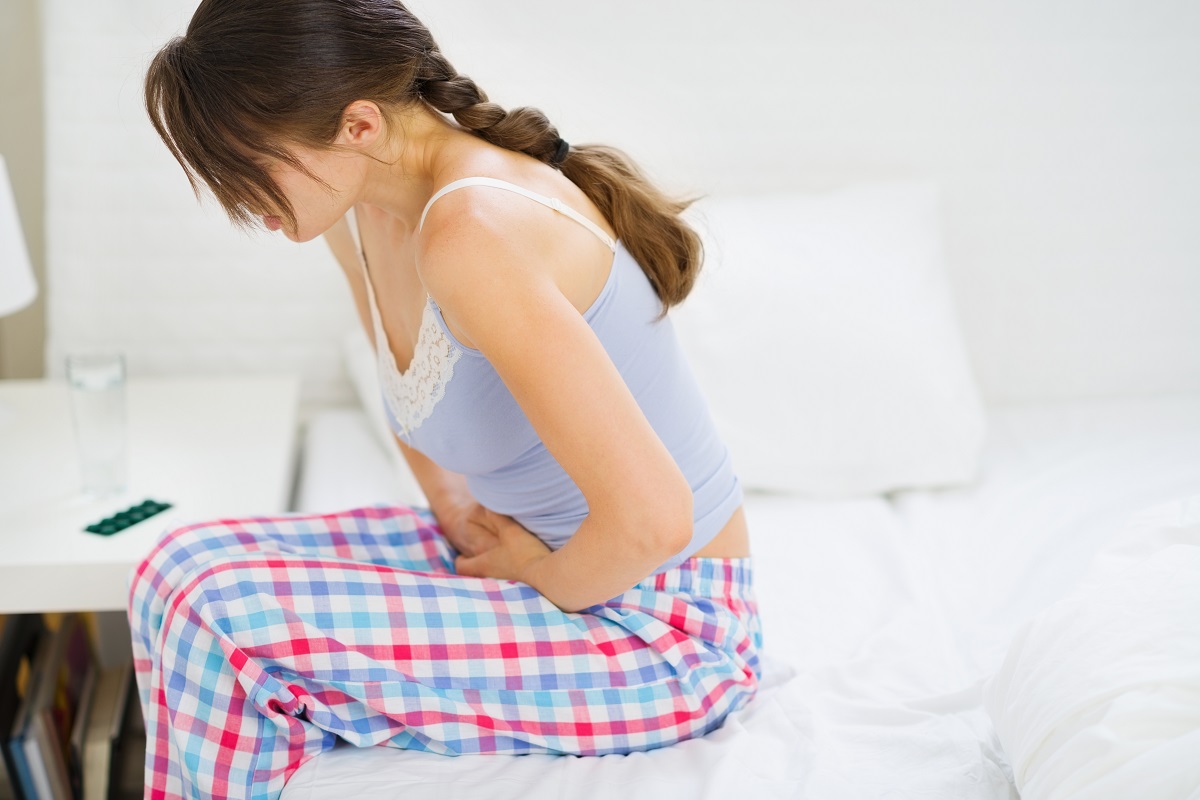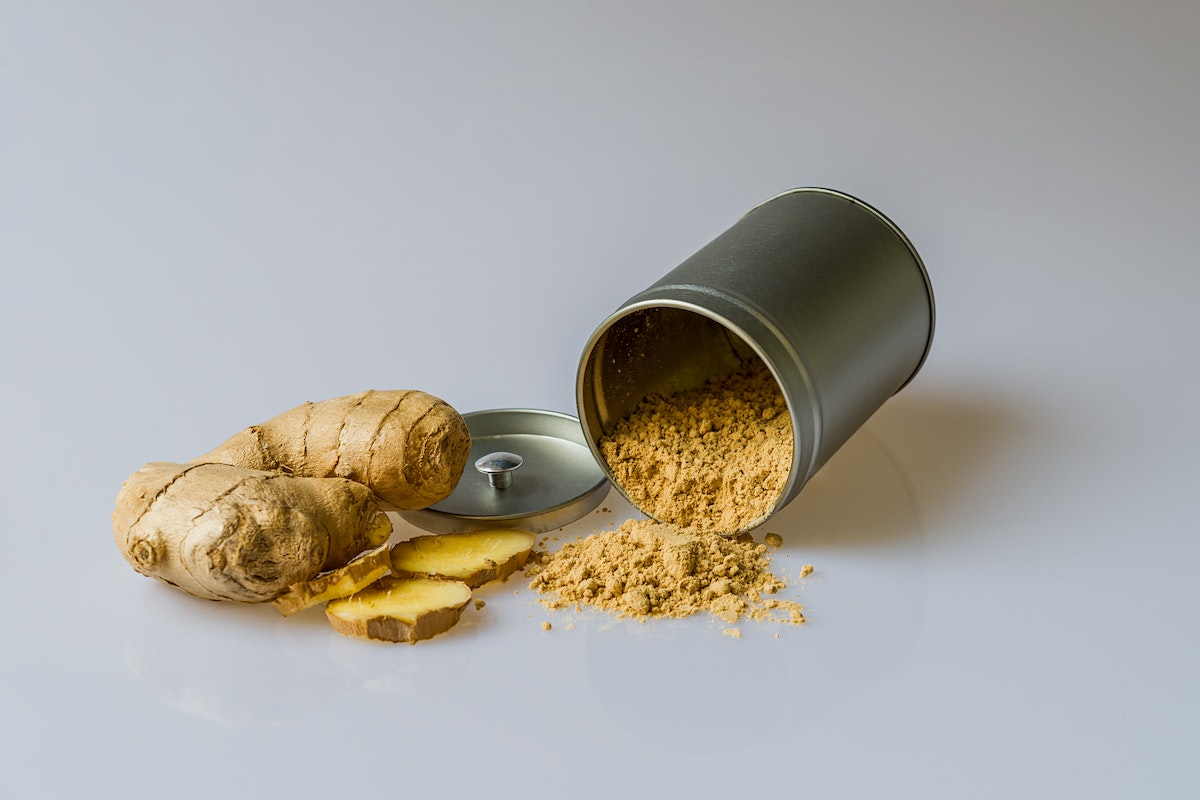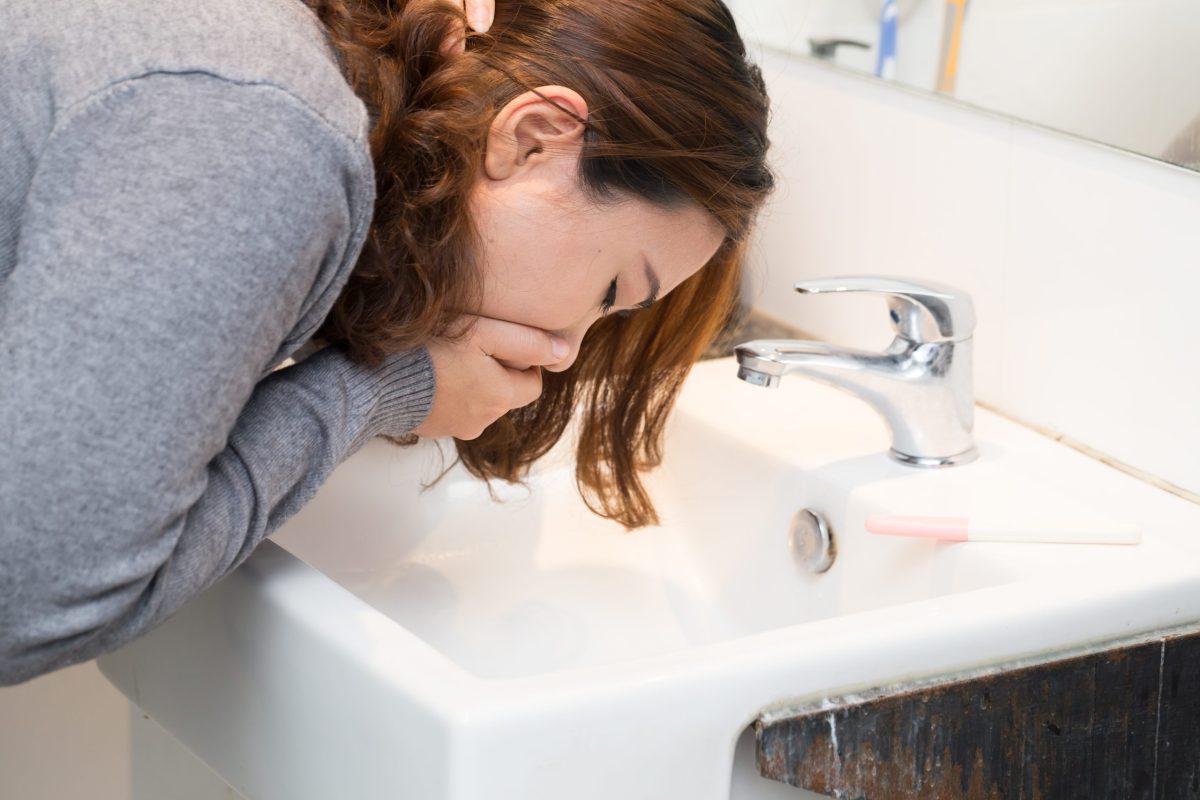The menstrual cycle is a natural process governed by female hormones that causes regular bleeding (periods). It consists of four phases: menstruation, the follicular phase, ovulation, and the luteal phase. The purpose of the menstrual cycle is to prepare the body for possible pregnancy. If pregnancy does not occur, the hormones signal the uterus to shed its lining, resulting in a period. The cycle then restarts with the onset of menstruation.
To determine your menstrual cycle, start counting from the first day to the first day of your next period. Although the average menstrual cycle falls between 28 to 29 days, it can vary between women.
As you approach your menstrual cycle, you may experience various symptoms that can be uncomfortable and even bothersome. These symptoms include fatigue and headache. But can your period make you nauseous? Absolutely. Multiple factors, such as hormonal imbalances, dehydration, or a sensitivity to certain foods, can cause nausea.
What Causes Nausea Before and During Periods?
Nausea before period is a common symptom of premenstrual syndrome (PMS) experienced by many women. The situation is similar when women experience nausea during their period. One of the hormones, prostaglandin, which circulates during menstruation, can cause various symptoms, including nausea, vomiting, diarrhea, and headaches.
The symptoms of PMS usually start one to two weeks before your period. You may experience breast tenderness, constipation, back pain, headaches, and bloating. Additionally, you may feel anxious or irritable, have mood swings, or experience unexplained crying. Difficulty sleeping is also a common symptom.
Dysmenorrhea

The medical term for menstrual cramps or painful periods is dysmenorrhea. You may experience symptoms like nausea, fatigue, and diarrhea along with cramps. Typically, menstrual cramps occur a day before or on the first day of the period and last for two to three days.
While mild to moderate menstrual cramping is typical, some individuals experience such intense pain during their periods that it disrupts their daily routines and keeps them from engaging in activities they enjoy. However, remedies and other treatments can be used to alleviate painful periods.
Premenstrual Syndrome (PMS)
Premenstrual Syndrome, or PMS, is a condition that affects many women who are menstruating. It can cause various symptoms, such as mood swings, fatigue, food cravings, irritability, depression, and tender breasts. Most women, over 90 percent, say they get some premenstrual symptoms, such as bloating, headaches, and moodiness.
Although the symptoms tend to appear in a recurring pattern, the severity of the symptoms can vary from mild to severe. You don’t need to let premenstrual syndrome control your life. There are treatments and lifestyle adjustments that can assist you in reducing or managing its signs and symptoms.
Premenstrual Dysphoric Disorder (PMDD)
PMDD, or premenstrual dysphoric disorder, is a health problem that is more serious than PMS. It causes anxiety, depression, or severe irritability in the two weeks before your period starts and usually goes away a few days into your period. Treatment, which may include medication, is available to help manage symptoms. Approximately 5 percent of women of childbearing age are affected by PMDD, and many women with this disorder may also experience anxiety or depression.
PMDD symptoms may include irritability or anger that doesn’t go away, persistent feelings of sadness or hopelessness, mood swings, anxiety or tension, fatigue, food cravings, sleep issues, cramps, bloating, breast tenderness, headaches, and joint or muscle pain. In severe cases, thoughts of suicide may occur.
Endometriosis
One out of ten women and girls of reproductive age, or about 190 million people worldwide, have endometriosis. In this condition, tissue similar to the lining of the uterus grows outside it. It causes intense pelvic pain and can make it difficult to conceive. Endometriosis can begin during a person’s first menstrual cycle and last until menopause.
When tissue grows outside the uterus, it causes inflammation and scar tissue in the pelvic area or other parts of the body, a condition known as endometriosis. The cause of this condition is unknown, and there is no known prevention or cure. However, medication or surgery can help manage symptoms in some cases.
Pelvic Inflammatory Disease (PID)
Pelvic inflammatory disease, or PID, is a medical issue affecting the female reproductive organs that can arise from transmitting sexually transmitted bacteria. Although its signs and symptoms can be subtle or mild, some women may not experience any symptoms at all. As a result, you might not realize you have it until you encounter difficulty while attempting to conceive or develop chronic pelvic pain.
The disease can be hard to detect since the signs and symptoms may be mild. Some women may not experience any symptoms at all. However, symptoms usually include pain in the lower abdomen and pelvis, ranging from mild to severe, unusual and heavy discharge from the vagina with an unpleasant smell, unusual bleeding from the vagina between periods, fever with chills, or pain during sex.
Managing and Relieving Nausea During Periods
Managing and relieving nausea during your period is possible with lifestyle changes and home remedies. These changes and remedies can provide period nausea relief.
Lifestyle Changes for Nausea Relief
There are a few lifestyle changes that you can make to find relief from period-related nausea:
Proper Hydration
Staying hydrated is essential for overall well-being and can help alleviate nausea. Aim to drink at least eight glasses of water a day, as well as herbal teas or juices. You can also take small sips of beverages that are rich in electrolytes. Small drinks with electrolytes can help promote hydration and replace the electrolytes lost during vomiting.
Balanced Diet
Eating a balanced diet can help you prevent nausea during your period. Avoid processed and sugary foods, as well as caffeine and alcohol. Instead, focus on eating fresh vegetables, fruits, whole grains, lean proteins, and healthy fats. You should also incorporate probiotic-rich foods like yogurt or kombucha to support your digestive health.
Stress Reduction
Stress can worsen the symptoms of PMS, so it’s essential to take breaks from the busyness of everyday life and relax. You can try yoga, meditation, listening to music, taking a hot bath, or talking with friends. Additionally, make sure you get plenty of sleep at night to help reduce stress and improve your overall health.
Sleep and Rest
Getting enough sleep and rest can help reduce nausea during your period, so get seven to eight hours of sleep each night. Additionally, avoid overworking yourself and take short breaks throughout the day to relax your mind and body.
Home Remedies for Nausea Relief
There are some herbs that you can use to help reduce nausea and other period symptoms:
Ginger

Ginger is a known solution to relieve nausea due to its ability to increase saliva production in the stomach, facilitating digestion. Powdered ginger capsules have been proven effective in reducing vomiting and nausea. You may also consume ginger through alternatives, such as ginger tea, ginger candy, gingersnap cookies, or ginger ale. Ginger is a particularly effective treatment for nausea symptoms, especially during pregnancy. In case of nausea, consuming light, low-fat foods is best.
Peppermint
Peppermint can help relieve nausea. It can soothe and numb your stomach muscles, which allows bile to break down fats and food to move through your stomach more easily. Peppermint tea is the most commonly used form of this remedy but comes in capsules for oral consumption. If you want to use peppermint essential oil for aromatherapy, you’ll need to mix it with a carrier oil to dilute it first. However, if you have GERD, you should avoid using peppermint altogether.
Fennel
Fennel can help calm the stomach and reduce nausea. It can be consumed as fennel tea, seeds, or candy. To make fennel tea, steep fresh fennel seeds in boiling water for a few minutes, then strain and drink.
Natural Supplements
Vitamin B6 is a nutrient that helps your body to process fats, carbohydrates, and proteins. It occurs naturally in many foods and is also accessible in supplement form. According to research, pregnant women experiencing nausea may benefit from taking a vitamin B6 supplement, as it is an effective treatment. If you frequently suffer from nausea, taking up to 200mg of the supplement daily is recommended.
Acupressure Techniques
Acupressure is an old Chinese technique that involves using fingers or a device to apply pressure on specific parts of the body to alleviate discomfort, much like acupuncture. Both techniques alter the nerve signals that convey pain to the brain. Pressing down hard on the groove between the two major tendons on the inside of your wrist, which start at the base of your palm, may help relieve mild nausea and morning sickness.
You can find over-the-counter wristbands that can relieve nausea by pressing on pressure points on your wrist. Additionally, acupuncture is a common treatment for nausea and vomiting caused by chemotherapy for cancer.
Medical Interventions and Medications
Various drugs or drug combinations can manage nausea effectively. These drugs target different pathways in the body that trigger nausea and vomiting. Your doctor will recommend specific anti-nausea drugs based on the cause of your nausea and the potential for nausea and vomiting during treatment. Some drugs may target the brain’s vomiting center, while others may be used if the initial medication is ineffective.
Over-the-Counter Options
Over-the-counter or OTC medicines are those that you can buy without a prescription. Antiemetics treats nausea and vomiting; some OTC medicines can function as antiemetics. To ensure safe use:
- Carefully read the drug facts label before taking an OTC antiemetic medicine. The label will provide instructions on the appropriate dosage and frequency.
- If you have questions, consult your family doctor.
- Maintain a record of which OTC medicines you use and when you take them.
Before taking any OTC antiemetic medicines, consult your doctor if you are pregnant. Only follow the recommended dosage stated on the label of the medicine. Taking more than the recommended amount may pose a risk to your health. Also, avoid taking more than one kind of OTC antiemetic medicine at a time unless your doctor advises, as they may contain similar active ingredients, which can be harmful in excess.
Prescription Medications
OTC medications for nausea are commonly used for conditions like traveler’s diarrhea or motion sickness. However, if you require a more potent or alternative solution for relief, prescription-only nausea medications can be useful. These medications are also available in oral forms, like OTC options, and some may come in suppositories. You can save money by using generic versions of the common anti-nausea prescriptions. You should explore some commonly prescribed medications with generic versions available.
Preventing Nausea During Periods
It is common to experience nausea during your period, which is caused by prostaglandins. Prostaglandins help your body fight pathogens and help your uterus contract and shed its lining during your period.
However, they can cause nausea as a side effect, sometimes leading to vomiting, headaches, and diarrhea. You may experience nausea during your period due to a slight change in sex hormones. This can produce excess gastric juices that contain hydrochloric acid, causing mild heartburn or even vomiting in extreme cases.
To prevent nausea during periods, you can modify your diet or manage stress:
Dietary Modifications for Nausea Prevention
Modifying your diet is essential to prevent getting nauseous during your period. Here are some modifications you can make to your diet for nausea prevention.
Foods to Avoid
Here are foods you should avoid to prevent nausea during your period.
- Sugar – Having sugar in moderation is fine, but excessive intake can lead to an energy surge followed by a drop. This can aggravate your mood. If you typically experience mood swings, sadness, or anxiety while menstruating, controlling your sugar consumption can help stabilize your mood.
- Salt – To avoid bloating caused by water retention, it’s best to avoid adding salt to your food and steer clear of highly processed foods high in sodium.
- Red Meat – Prostaglandins are produced by your body during your period to help your uterus contract and shed the uterine lining. However, too many prostaglandins can lead to painful cramps. While red meat is high in iron, it is also high in prostaglandins and should be avoided during menstruation.
- Spicy Food – If you experience stomach problems like diarrhea, stomach pain, or nausea when you eat spicy food, it’s best to avoid them during your period. Some people find it challenging to digest spicy food or may not be accustomed to it.
- Coffee – Consuming caffeine can lead to water retention and bloating and worsen headaches. However, it’s important to note that abruptly stopping caffeine intake can also trigger headaches. Therefore, if you regularly consume a few cups of coffee daily, it’s advisable not to eliminate it.
- Alcohol – Drinking alcohol while on your period can worsen your symptoms due to its negative effects on the body. Alcohol can dehydrate you, leading to more severe headaches and bloating. Additionally, alcohol can cause digestive problems like diarrhea and nausea.
Healthy Eating Habits

You should follow some eating habits to prevent becoming nauseous during your period.
- Eat More Fruits and Vegetables – To boost your nutrient intake, prioritize consuming various types and colors of leafy greens. Vegetables such as kale, turnip greens, and Swiss chard are excellent sources of iron and B vitamins that can help prevent fatigue. You can try sautéing the greens using olive oil, chopped onion, and fresh minced garlic.
- Increase Low–Fat Dairy Consumption – According to a study, calcium supplements can help alleviate mood disorders during PMS. Calcium-rich foods such as yogurt, milk, soy products, and low-fat cheese can also help reduce various PMS symptoms.
- Consume Complex Carbs – Try incorporating foods that contain complex carbohydrates into your diet. These foods have three or more natural sugars and are high in fiber. They are digested slowly, causing a moderate increase in insulin levels that can help stabilize your mood and reduce cravings. Some examples include squash, potatoes, pumpkin, and unprocessed oats.
- Drink More Water – It’s essential to drink plenty of water to help reduce bloating and aid digestion. Women should aim for at least 64 ounces of water per day. If you don’t enjoy the taste of plain water, try adding some lemon, lime, or cucumber slices for flavor. You can get creative with your water to make drinking more enjoyable.
- Snack on Nuts – Opt for unsalted and raw nuts as a healthy snack to avoid indulging in junk food. Nuts are packed with omega-3 fatty acids, providing longer satiety and numerous heart benefits. You can try nuts such as almonds, walnuts, and pecans. To reap maximum benefits, you can also sprinkle them onto vegetable salads.
Stress Management Techniques
Managing stress is vital in preventing nausea during your period. Find ways to take care of yourself by engaging in self-care practices that can help reduce your stress levels. Here are some tips:
Relaxation Exercises
Relaxation exercises help manage stress. You can focus on deep breathing exercises, yoga, tai chi, progressive muscle relaxation, or guided imagery. All these help you achieve a state of relaxation and can be done in the comfort of your home.
Mindfulness and Meditation
Mindfulness and meditation are excellent relaxation techniques that reduce stress. You can find various apps that offer guided meditations to help you relax and guided visualizations. If you’re new to this practice, start with shorter sessions and gradually increase the duration of your sessions.
When to Seek Medical Advice
You should consult a doctor if you cannot keep food or liquids in your system, experience nausea for over 48 hours, vomit at least three times a day, have a fever, feel weak, experience stomach pain, or haven’t urinated in at least eight hours.
Frequently Asked Questions (FAQs)
Here are some frequently asked questions about preventing nausea during your period.
Why am I so nauseous on my period?
Nausea during your period is usually caused by the production of prostaglandins, hormones released during your menstrual cycle to help your uterus contract and shed its lining.
Is it normal to faint during your period?
Fainting during your period is abnormal and may indicate an underlying condition. If you experience fainting, you must consult your doctor for further evaluation.
How can I stop dizziness during PMS?
You can try relaxation exercises, deep breathing, yoga, or tai chi to reduce dizziness during PMS. Eating smaller meals more frequently throughout the day can also help with dizziness caused by hunger.
Why do I feel weak and shaky on my period?
Weakness and shakiness during your period are usually caused by low blood sugar levels. You should eat meals containing complex carbohydrates throughout the day to prevent this.
Nausea during your period is a common issue that can lead to additional discomfort and symptoms like headaches, fever, fatigue, or fainting. Modifying your diet and managing stress are essential steps in preventing nausea. Additionally, taking OTC medications or prescription drugs may help alleviate your symptoms. If nausea persists for over 48 hours or if you experience other symptoms, it is important to consult a doctor for further evaluation. With the proper diet and lifestyle changes, you can find relief from nausea during your period.




